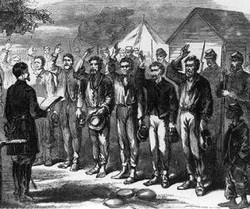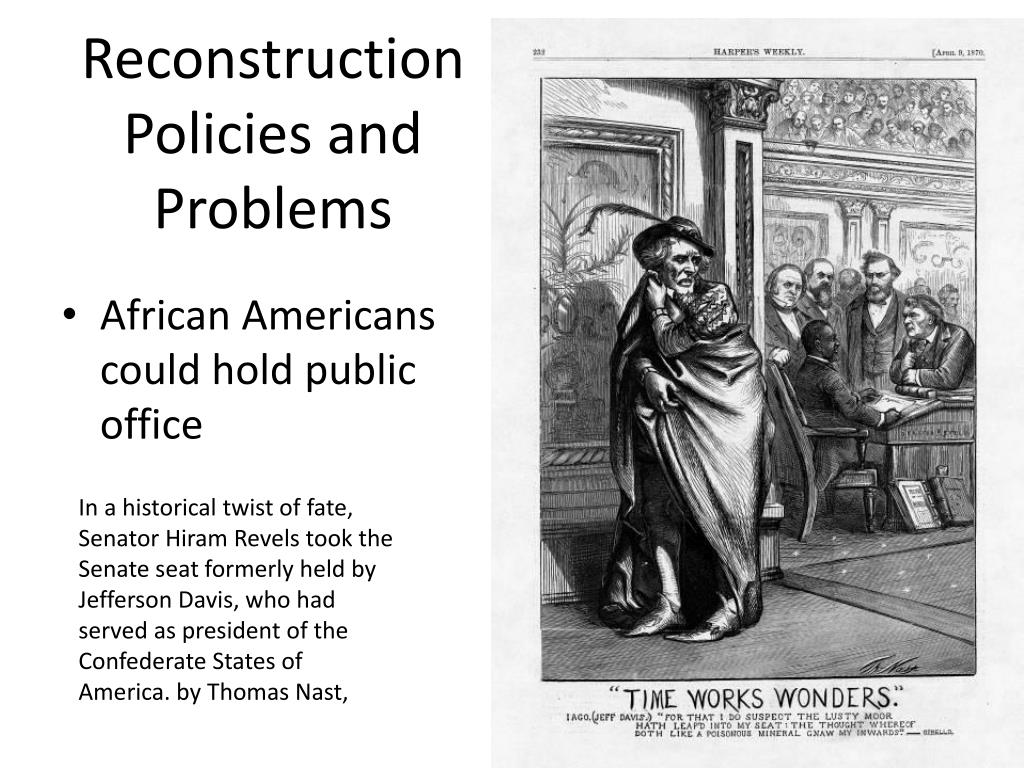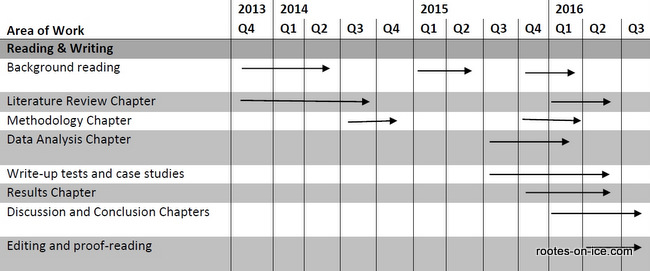
The Congressional Plan of Reconstruction was ultimately adopted, and it did not officially end until , when Union troops were pulled out of the South. This withdrawal caused a reversal of many of the tenuous advances made in equality, and many of the issues surrounding Reconstruction are still a Reconstruction: Policies and problems • Southern military leaders could not hold office. • African Americans could hold public office. • African Americans gained equal rights as a result of the Civil Rights Act of , which also authorized the use of federal troops for its enforcement. • Northern soldiers supervised the blogger.com Size: KB Oct 28, · Reconstruction (), the turbulent era following the Civil War, was the effort to reintegrate Southern states from the Confederacy and 4 million
Reconstruction Policies and Problems
Southern states undermined efforts at equality with laws designed to disfranchise blacks, despite of a series of federal equal-rights laws. During the Reconstruction period of —, federal law provided civil rights protection in the U. South for freedmen, the African Americans who had formerly been slaves. In the s, Democrats gradually returned to power in the Southern states, sometimes as a result of elections in which paramilitary groups intimidated opponents, attacking blacks or preventing them from voting.
Gubernatorial elections were close and disputed in Louisiana for years, with extreme violence being unleashed during the campaigns. Ina national compromise to gain Southern support in the presidential election resulted reconstruction policy in the south the last of the federal troops being withdrawn from the South. White Democrats had regained political power in every Southern state. The federal government reconstruction policy in the south a policy of providing arable land to former black slaves during the last stages of the American Civil War in The Special Field Orders issued by Sherman were never intended to represent an official policy of the U.
government with regard to all former slaves, reconstruction policy in the south. On March 3,Congress passed the bill to aid former slaves through legal food and housing, oversight, education, health care, and employment contracts with private landowners.
Later, it focused its work reconstruction policy in the south helping the freedmen adjust to their condition of freedom by setting up work opportunities and supervising labor contracts. It soon reconstruction policy in the south, in effect, a military court that handled legal issues. The bureau distributed 15 million rations of food to African Americans, and set up a system in which planters could borrow rations in order to feed freedmen they employed.
Prior to the Civil War, no Southern state had a system of universal state-supported public education. Freedmen had a strong desire to learn to read and write.
The bureau faced many challenges despite its good intentions, efforts, and limited successes. Byit was attacked by Southern whites for organizing blacks against their former masters. That same year President Andrew Johnson, supported reconstruction policy in the south Radical Republicans, vetoed a bill for an increase of power for the bureau.
Many local bureau agents were hindered in carrying out their duties by the opposition of former Confederates, and lacked a military presence to enforce their authority.
Slave children : Two children who were likely emancipated during the Civil War, circa Jim Crow laws were state and local laws enforcing racial segregation in the Southern United States. Many of these laws were focused on legally disfranchising the freedmen, especially with regard to voting, thereby blocking their participation in political life.
Blacks were still elected to local offices in the s, but the establishment Democrats were passing laws to make voter registration and electoral rules more restrictive. As a result, political participation by most blacks and many reconstruction policy in the south whites began to decrease.
Between and10 of the 11 former Confederate states, starting with Mississippi, passed new constitutions or amendments that effectively disfranchised most blacks and tens of thousands of poor whites through a combination of poll taxes, literacy and comprehension tests, and residency and record-keeping requirements.
Grandfather clauses temporarily permitted some illiterate whites to vote. Those who could not vote were not eligible to serve on juries and could not run for local offices.
They effectively disappeared from political life, reconstruction policy in the south they could not influence the state legislatures, and their interests were overlooked. Public schools had been established by Reconstruction legislatures for the first time in most Southern states.
The schools for black children were consistently underfunded compared to schools for white children, even when considered within the strained finances of the postwar South. The decreasing price of cotton kept the agricultural economy at a low. White supremacist paramilitary organizations, allied with Southern Democrats, used reconstruction policy in the south, violence, and assassinations to repress blacks and prevent them from exercising their civil rights in elections from until the mids.
The insurgent Ku Klux Klan KKK was formed in in Tennessee as a backlash to defeat in the war and quickly became a powerful secret vigilante group, reconstruction policy in the south, with chapters across the South. The Klan initiated a campaign of intimidation directed against blacks and sympathetic whites. Their violence included vandalism and destruction of property, physical attacks and assassinations, and lynchings. Teachers who came from the North to teach freedmen were sometimes attacked or intimidated as well.
After the Civil War, many African Americans and former slaves became Republicans and officeholders. The Republican coalition elected numerous African Americans to local, state, and national offices. Although they did not dominate any electoral offices, black representatives voting in state and federal legislatures marked a drastic social shift. At the beginning ofno African American in the South held political office, but within three or four years, a significant minority of officeholders in the South were black.
About black officeholders had lived outside of the South before the Civil War. Some had escaped from slavery to the North, become educated, reconstruction policy in the south, and returned to help the South advance in the postwar era. Others were free blacks before the war, who had reconstruction policy in the south education and positions of leadership elsewhere.
Other African-American men who served were already leaders in their communities, including a number of preachers. As happened in white communities, not all leadership depended upon wealth and literacy. Hiram Rhodes Revels : U. Senator Hiram Rhodes Revels, the first African American in Congress. A few African Americans were elected or appointed to national office. African Americans voted for white candidates and for blacks. The Fifteenth Amendment guaranteed the right to vote, but did not guarantee that the vote would be counted or the districts would be apportioned equally.
In addition, establishment Democrats passed laws to make voter registration and electoral rules more restrictive, with the result that political participation by most blacks was stifled. As a result, states with a majority African-American population often elected only one or two African-American representatives in Congress. Exceptions included South Carolina; at the end of Reconstruction, four of its five congressmen were African American.
Hiram Rhodes Revels September 27, —January 16, was the first African American to serve in the U. Because he preceded any African American in the House, he was the first African American in the U. Congress as well. He represented Mississippi in and As a senator, Revels advocated compromise and moderation. He vigorously supported racial equality and worked to reassure his fellow senators about the capability of African Americans.
In his maiden speech to the Senate on March 16,he argued for the reinstatement of the black legislators of the Georgia General Assembly, who had been illegally ousted by white Democratic Party representatives. Joseph Reconstruction policy in the south : U. Representative Joseph Rainey, the first African American to be directly elected to Congress.
Joseph Hayne Rainey June 21, —August 1, was the first African American to serve in the U. House of Representatives, the second black person to serve in reconstruction policy in the south U, reconstruction policy in the south.
Congress, the first African American to be directly elected to Congress Revels had been appointedand the first black presiding officer of the U. House of Representatives. During his term in Congress, Rainey supported legislation to protect the civil rights of Southern blacks, working for two years to gain passage of the Civil Rights Act of He also worked to promote the Southern economy.
In MayRainey became the first African American to preside over the House of Representatives as Speaker pro tempore. Three groups comprised the Republican Party in the South after the Civil War. Politically, the carpetbaggers were usually dominant; they comprised the majority of Republican governors and congressmen.
However, the Republican Party inside each state was increasingly torn between the more conservative scalawags on one side and the more Radical carpetbaggers with their black allies on the other. In most cases, the carpetbaggers won out, and many scalawags moved into the conservative or Democratic opposition. In the context of U. Carpetbagger : This political cartoon from depicts carpetbaggers in a negative light. Together with Republicans, carpetbaggers were viewed as politically manipulating formerly Confederate states for their own financial and political gains.
Carpetbaggers were seen as insidious Northern outsiders with questionable objectives, who attempted to meddle with, and control, Southern politics. In fact, carpetbaggers became a powerful political force during Reconstruction. Sixty carpetbaggers were elected to Congress, and they included a majority of Republican governors in the South during Reconstruction.
Many carpetbaggers moved to the South as social reformers. Beginning inNorthern abolitionists moved to areas in the South that had fallen under Union control. Schoolteachers and religious missionaries arrived in the South, some sponsored by Northern churches, reconstruction policy in the south.
The bureau established schools in rural areas of the South for the purpose of educating the mostly illiterate black population, reconstruction policy in the south. Other Northerners who moved to the South participated in reconstruction policy in the south railroads that had been previously destroyed during the war. During the time blacks were enslaved, they were prohibited from being educated and attaining literacy.
Southern states had no public school systems, and white Southerners either sent their children to private schools or employed private tutors. After the war, reconstruction policy in the south, hundreds of Northern white women moved South, many to teach newly freed African-American children. While some Northerners went South with reformist impulses, many others went South merely to exploit the chaotic environment for personal gain.
Many carpetbaggers were businessmen who purchased or leased plantations and became wealthy landowners, hiring freedmen to do the labor. Most were former Union soldiers eager to invest their savings in this promising new frontier, and civilians lured South by press reports of easy money on cotton plantations. Following the Civil War, carpetbaggers often bought plantations at fire-sale prices. Because of this and other behavior, they were generally considered to be taking advantage of those living in the South.
Typically, it was used by conservative, pro-federation Southerners to derogate individuals whom they viewed as betraying Southern values by supporting Northern policies such as desegregation. The fate of the carpetbagger and scalawag : A cartoon threatening that the Ku Klux Klan would lynch carpetbaggers, Tuscaloosa, Alabama, reconstruction policy in the south, Independent Monitor, During Reconstruction, scalawags formed coalitions with black freedmen and Northern newcomers to take control of state and local governments.
Despite being a minority, these groups gained power by taking advantage of the Reconstruction laws of These laws disenfranchised individuals who could not take the Ironclad Oath.
Any individual who had served in the Confederate Army, or who had held office in a state or Confederate government, was not allowed to take this oath.
Reconstruction: The Civil War in Four Minutes
, time: 4:45Reconstruction - Civil War End, Changes & Act of - HISTORY

THE RECONSTRUCTION ACTS The Military Reconstruction Act, which encompassed the vision of Radical Republicans, set a new direction for Reconstruction in the South. Republicans saw this law, and three supplementary laws passed by Congress that year, called the Reconstruction Acts, as a way to deal with the disorder in the South Oct 28, · Reconstruction (), the turbulent era following the Civil War, was the effort to reintegrate Southern states from the Confederacy and 4 million The Congressional Plan of Reconstruction was ultimately adopted, and it did not officially end until , when Union troops were pulled out of the South. This withdrawal caused a reversal of many of the tenuous advances made in equality, and many of the issues surrounding Reconstruction are still a

No comments:
Post a Comment